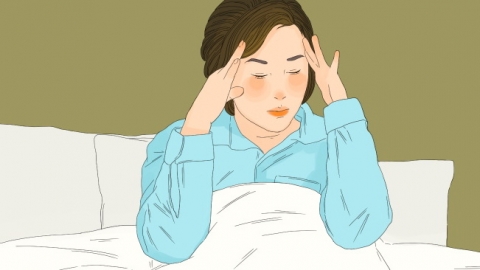What causes sudden palpitations, chest tightness, and anxiety?
Sudden palpitations, chest tightness, and anxiety may be caused by emotional stress, intense exercise, anxiety disorder, arrhythmia, hyperthyroidism, etc. Symptoms can be improved through calming emotions, resting, relaxation techniques, or medication. If symptoms occur frequently or are accompanied by chest pain or dizziness, prompt medical attention is necessary.
1. Emotional Stress: Sudden strong emotions such as tension or fear can stimulate the sympathetic nervous system, leading to rapid heartbeat, chest tightness, and anxiety. It is recommended to immediately remove oneself from the triggering environment and use deep breathing or meditation to calm down, preventing further emotional fluctuations.
2. Intense Exercise: Excessive exercise intensity or failure to rest promptly after physical activity significantly increases the body's oxygen demand, causing palpitations, chest discomfort, and anxiety. It is advised to stop exercising immediately, sit or lie down to rest, and slowly drink warm water—avoid consuming large amounts of water quickly.

3. Anxiety Disorder: Prolonged psychological stress can lead to imbalance in nervous system regulation, resulting in sudden intense anxiety, accompanied by palpitations, chest tightness, rapid breathing, and a sense of impending doom. Patients may take medications such as sertraline tablets, paroxetine tablets, or buspirone tablets under medical guidance to alleviate symptoms.
4. Arrhythmia: Abnormal electrical conduction in the heart causes irregular heart rhythms, leading to palpitations, chest tightness, dizziness, and anxiety, sometimes with an irregular pulse. It is recommended to take medications such as metoprolol sustained-release tablets, propafenone tablets, or amiodarone tablets under a doctor’s supervision to relieve discomfort.
5. Hyperthyroidism: Excessive secretion of thyroid hormones accelerates metabolism and stimulates the heart and nervous system, causing palpitations, chest tightness, anxiety, irritability, along with symptoms like excessive sweating and weight loss. Patients may take medications such as methimazole tablets, propylthiouracil tablets, or propranolol tablets as directed by a physician to improve symptoms.
Maintain a regular sleep schedule and avoid staying up late, eat a light diet low in spicy or stimulating foods, engage in moderate gentle exercise, learn emotional regulation techniques, communicate regularly with family and friends, and minimize triggers of anxiety.






